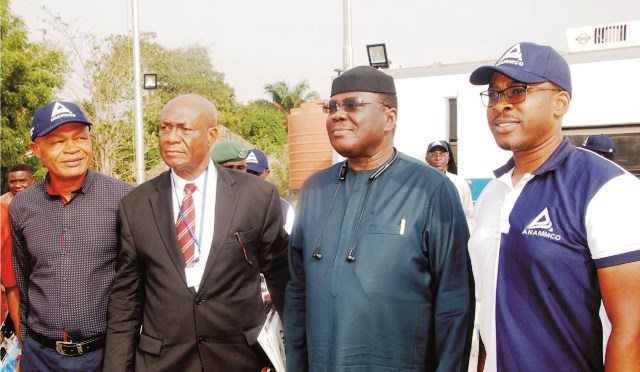Business
NPA Begins Automation Of Call-Up System, August

The Nigerian Ports Authority (NPA) said, yesterday that it would begin automation of the call-up system in August.
The NPA’s General Manager, Corporate and Strategic Communication, Mr Adams Jatto made this known in an interview with The Tide source in Lagos.
According to him, what is holding back the take-off of the call-up system is the shoreline protection for the Tin-Can axis of the truck terminal.
“We have concluded the procurement process to be able to engage our investors to manage the truck park.
“So with this, I believe we should be able to have something on ground for people to be proud of.
“Call-up system is not just the areas we are looking at, for us to ease the congestion along ports access roads.
“It is a kind of temporary measure for us to ensure that we have a free flow on the axis that lead to the ports.
“The call-up system is for us to be able to have truck parks along ports area and some of the truck owners have assured us that they have truck parks, where they can park their trucks.
“A call-up system is to ensure that in each of the areas where there are truck parks, the trucks are there and when it is time for them to come to the ports, we have to adopt the call-up system to call them.
“On the basis of this, we will be able to streamline the trucks coming into the ports, to ease congestion,” Jatto said.
He said that the authority was looking forward to implementing sustainable solutions to the gridlock.
He said that the agency had provided short, medium, and long term solutions to the gridlock.
Jatto maintained that the present management of NPA had also engaged the support services of other government agencies, which built part of the road in partnership with NPA.
The agencies included: the Federal Ministry of Works, Power and Housing,Dangote and Flour Mills.
He said that between Lagos Port Complex and after Leventis, the road had been constructed for short-term, saying that the medium term plan was to construct the Creek Road, down to Tin-Can Island Port and Mile-2.
Jatto further disclosed that the road would be constructed from Mile-2 to Oworonsoki.
He said that under the long-term solutions provided, the Federal Ministry of Transportation would ensure that cargoes were evacuated to the hinterland through the rail system being put in place.
“A truck terminal park had been constructed at Tin-Can Island port, but the shoreline protection was not done.
“The Federal Ministry of Works had re-awarded the contract for completion.
“ Our Managing Director, Ms Hadiza Bala-Usman had taken a bold step to ensure that the truck terminal will be managed by Public Private Partnership (PPP).
“That is where we are having real automation of call-up system.
“The management of NPA is working toward ensuring that Lillypond terminal is converted to a truck transit park for easy flow of traffic, along ports access road in Lagos, “ he said
He however, urged ports users to bear with the NPA management, as it was not in the authority’s character to allow congestion on the access road to the port.
Jatto said that the management was doing its best possible to ensure that ports in the country became user friendly so that revenue collection would improve.

